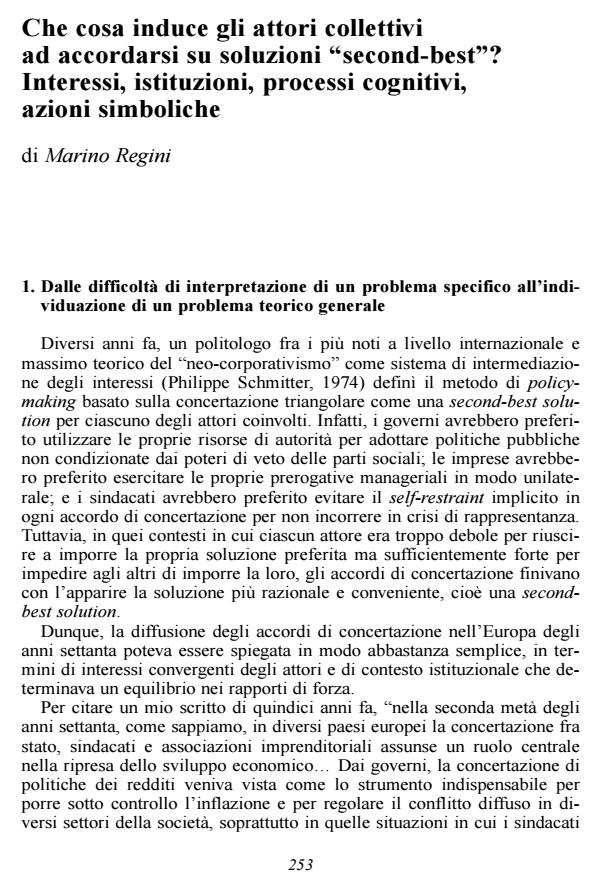Che cosa induce gli attori collettivi ad accordarsi su soluzioni second best? Interessi, Istituzioni, processi cognitivi, azioni simboliche
Titolo Rivista SOCIOLOGIA DEL LAVORO
Autori/Curatori Marino Regini
Anno di pubblicazione 2006 Fascicolo 2005/100 Lingua Italiano
Numero pagine 9 P. Dimensione file 25 KB
DOI
Il DOI è il codice a barre della proprietà intellettuale: per saperne di più
clicca qui
Qui sotto puoi vedere in anteprima la prima pagina di questo articolo.
Se questo articolo ti interessa, lo puoi acquistare (e scaricare in formato pdf) seguendo le facili indicazioni per acquistare il download credit. Acquista Download Credits per scaricare questo Articolo in formato PDF

FrancoAngeli è membro della Publishers International Linking Association, Inc (PILA)associazione indipendente e non profit per facilitare (attraverso i servizi tecnologici implementati da CrossRef.org) l’accesso degli studiosi ai contenuti digitali nelle pubblicazioni professionali e scientifiche
Several years ago, Philippe Schmitter characterized tripartite concertation as a second-best solution for all actors concerned. But collective actors with basically the same features do not always succeed in reaching shared solutions that a) do not correspond to the preference order of any of the actors involved and b) to be effective, must be accepted by actors that do not directly participate in the agreement. How can we account for this varying degree of success? This article claims that we should try and combine three different types of independent variables. The first type is widespread in the political economy literature and refers to such variables as actors’ interests and behaviour which is path-dependent on the institutional context, changing power relations among these actors, conditions which do or do not allow for cooperative games. The second type refers to actors’ cognitive processes, such as their perceptions of power relations, ability to formulate alternative scenarios and their implications, willingness to learn from previous experience. Finally, symbolic action aimed at maintaining collective identities may be important. Leaders that strike a deal must be able to rely on symbolic devices capable to convince their rank and file. Also, all actors must be able to argue that second-best solutions are necessary to achieve public goods that may even be socially constructed as national emergencies.;
Marino Regini, Che cosa induce gli attori collettivi ad accordarsi su soluzioni second best? Interessi, Istituzioni, processi cognitivi, azioni simboliche in "SOCIOLOGIA DEL LAVORO " 100/2005, pp , DOI: